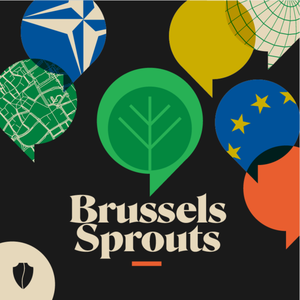
Brussels Sprouts
Center for a New American Security | CNAS
Small bites on Transatlantic Security, NATO, the …
- 50 minutes 44 secondsWhat Can Europe do in Syria?
After 54 years of brutal rule in Syria, the al-Assad family’s reign came to an end last week. Following 13 years of devastating civil war, which saw over a million refugees flee to Europe, and millions more internally displaced within Syria, the rebel victory brought both a sense of relief and celebration while also bringing a sense of trepidation and anxiety about what might come next. To analyze the events in Syria and discuss Europe's role in the formation of a new state, Asli Aydintasbas and Nathalie Tocci join Andrea Kendall-Taylor and Jim Townsend on this week's episode of Brussels Sprouts.
Asli Aydintasbas is Visiting Fellow at the Center on the United States and Europe at the Brookings Institution.
Nathalie Tocci is the Director of the Istituto Affari Internazionali.
13 December 2024, 6:28 am - 48 minutes 54 secondsTurmoil in Paris and Berlin Going into a Second Trump Term
Earlier this week, France’s government collapsed following a successful no-confidence vote from left-wing and far-right lawmakers. This political crisis comes on the heels of the collapse of Germany’s ruling coalition several weeks ago, leaving both of the European Union’s largest member states rudderless at a time when the bloc faces major challenges. Simultaneously, the EU is preparing for Donald Trump’s return to the White House next month and the possible consequences for the future of the war in Ukraine and threats to impose new tariffs. Finally, a brand-new European Commission has just taken office, only adding to all this uncertainty. To help us make sense of what we should expect in the months to come, Tara Varma and Liana Fix join Andrea Kendall-Taylor and Jim Townsend on this episode of Brussels Sprouts.
Tara Varma is a visiting fellow with the Center on the United States and Europe at the Brookings Institution.
Liana Fix is a fellow for Europe at the Council on Foreign Relations.
6 December 2024, 4:30 pm - 55 minutes 23 secondsTrump and the War in Ukraine with Michael Kofman and Robert Lee
More than 1000 days into the War in Ukraine, questions about continued support for the Ukrainian effort and the prospect of a negotiated settlement in the months to come have become all the more important. Trump has refused to say that he wants Ukraine to win the war and has pledged to end the war immediately. To help us make sense of this, Mike Kofman and Rob Lee join Andrea Kendall-Taylor and Jim Townsend on this week’s episode of Brussels Sprouts.
Mike Kofman is a senior fellow in the Russia and Eurasia Program at the Carnegie Endowment for International Peace, where he focuses on the Russian military, Ukrainian armed forces, and Eurasian security issues.
Rob Lee is a Senior Fellow in the Foreign Policy Research Institute’s Eurasia Program and a leading expert on Russian military affairs.
22 November 2024, 7:28 pm - 39 minutes 32 secondsWhat Trump Means for Europe with the Eurofile Podcast
For this special edition episode of Brussels Sprouts, Andrea Kendall-Taylor and Jim Townsend join forces with The Eurofile from the Center for Strategic and International Studies (CSIS) to reflect on the outcome of the recent United States presidential election with Max Bergmann and Donatienne Ruy. Listen in as they discuss what a second Trump term may mean for Europe, Ukraine, and United States relations with Russia.
Max Bergmann is the director of the Stuart Center and the Europe, Russia, and Eurasia Program at CSIS.
Donatienne Ruy is the director of the Abshire-Inamori Leadership Academy and a Fellow with the Europe, Russia, and Eurasia program at CSIS.
More information on The Eurofile and the CSIS Europe, Russia, and Eurasia Program can be found here.
15 November 2024, 6:02 am - 51 minutes 22 secondsThe Future of Russia and China in Central Asia
Despite the many proclamations that Russian and Chinese interests would collide in Central Asia, Moscow and Beijing continue to work together in service of their shared objectives. A new report from CNAS analyzes how the relationship is shaping the region.
Read it here: Russia and China in Central Asia: Cooperate, Compete, or De-conflict?
Most importantly, Russia and China seek to keep the United States, the West, and democracy out of the region, maintain stability, and pursue economic benefits. Though fissures exist, thus far the two countries have kept tensions from derailing the broader Russia-China relationship in Central Asia. To discuss these issues and more, Reid Standish and Alex Cooley join Andrea Kendall-Taylor and Jim Townsend on this episode of Brussels Sprouts.
Reid Standish is an Radio Free Europe/Radio Liberty correspondent in Prague and author of the China In Eurasia briefing.
Alex Cooley is the Claire Tow Professor of Political Science at Barnard College, Columbia University and an Academy Adjunct Faculty member at Chatham House.
13 November 2024, 6:03 am - 53 minutes 17 secondsDeveloping the European Defense Industry
Since the war in Ukraine began, the European Union has provided substantial military support to Kyiv. Yet years of underinvestment and a lack of coordination mean that Europe’s defense industrial base has struggled to keep up with demand. While there is a renewed sense of urgency to tackle this issue, in September, NATO’s outgoing secretary-general Jens Stoltenberg warned against EU defense efforts duplicating or competing with NATO, given scarce funding and personnel. What is the role of the EU when it comes to defense issues? Does the EU have a role in supporting the development of the defense industrial base? And how can EU and NATO efforts to support Ukraine be mutually supporting rather than cut across each other? To discuss these questions and more, Benedikta von Seherr-Thoss and Max Bergmann join Andrea Kendall-Taylor and Jim Townsend on Brussels Sprouts.
Dr Benedikta von Seherr-Thoss is the Managing Director for Peace, Security and Defence at the European External Action Service.
Max Bergmann is the director of the Europe, Russia, and Eurasia Program and the Stuart Center in Euro-Atlantic and Northern European Studies at the Center for Strategic and International Studies (CSIS).
1 November 2024, 5:13 am - 48 minutes 29 secondsRussia and the Rise of BRICS
This past Tuesday, Russia hosted a high-profile summit of the BRICS group in Kazan, Russia, demonstrating its growing determination to challenge the Western-led international order. As the group has expanded its membership during the past year, it has grown to encompass nearly half of the world’s population, lending it greater credibility as a platform for reflecting an increasingly multipolar world. Yet despite this expansion, the BRICS group continues to face internal divisions. Looking ahead, how should we interpret the evolving role of the BRICS, and what does this evolution mean for policymakers in the United States and Europe? To unpack all of this and more, Alexander Gabuev joins Andrea Kendall-Taylor and Kate Johnston on this week’s episode of Brussels Sprouts.
Alexander Gabuev is the Director of the Carnegie Russia Eurasia Center. His research is focused on Russian foreign policy with particular focus on the impact of the war in Ukraine and the Sino-Russia relationship.
25 October 2024, 5:30 am - 48 minutes 49 secondsWhat Might We Expect in Foreign Policy During a Second Trump Term?
As the 2024 presidential elections draw nearer, it’s becoming increasingly urgent to understand the potential implications for U.S. foreign policy. This week, Brussels Sprouts continues its two-part series focusing on the election by shifting focus to the foreign policy that could emerge under a Trump-Vance administration. To discuss all of this, Michael Allen and James Carafano join Andrea Kendall-Taylor and Kate Johnston on this week’s episode.
Michael Allen is a managing director at Beacon Global Strategies, where he specializes in national security and foreign policy.
James Carafano is Senior Counselor to the President and E.W. Richardson Fellow at the Heritage Foundation, where he works on national security and foreign policy challenges.
18 October 2024, 7:00 pm - 1 hour 18 minutesBrussels Sprouts Live: NATO in the American Heartland
NATO marked its 75th anniversary this year – a testament to the strength and continued relevance of the alliance. Celebrations have been muted however, due to the ongoing conflict in Ukraine and increasing concerns from Europe about US commitments to transatlantic security. The role of NATO is as crucial now as it was 75 years ago but the security threats the alliance faces are evolving, and growing in complexity.
To discuss these issues Ambassador Anniken Huitfeldt, Mark Newton, Maria Markowska, and John Deni joined Rebecca Moore for a live episode of Brussels Sprouts at Concordia College in Moorhead, Minnesota.
Ambassador Anniken Huitfeldt is the Norwegian Ambassador to the USA and was previously the Norwegian Foreign Minister from 2021 to 2023.
Mark Newton is Minister Defence (Director USA) at the British Embassy in Washington DC.
Maria Markowska is the First Counselor and Head of the Political Section at the Polish Embassy in Washington DC.
Dr John Deni is a Research Professor of Joint, Interagency, Intergovernmental, and Multinational (JIIM) Security Studies at the U.S. Army War College's Strategic Studies Institute
Dr Rebecca Moore is a professor of Political Science at Concordia College.
17 October 2024, 5:05 pm - 48 minutes 27 secondsRussia in the Middle East with Jonathan Lord and Hanna Notte
One year after the October 7 attacks by Hamas, the crisis in the Middle East has grown more and more complex. With the region teetering on the brink of broader conflict, the Biden administration is facing increasing pressure to mediate and prevent an all-out war. Meanwhile, regional dynamics are becoming more intertwined with broader geopolitics, as highlighted by Israel’s recent strike near a Russian air base in Syria. The nexus between the war in Ukraine and the Middle East crisis has also raised alarms about shifts in global alliances and resources, including concerns that Moscow may be assisting Tehran’s nuclear program amidst their deepening ties. To discuss these pressing developments and what they mean for the future of the region, Jonathan Lord and Hanna Notte join Andrea Kendall-Taylor on this week’s episode of Brussels Sprouts.
Jonathan Lord is a Senior Fellow and Director of the Middle East Security Program at the Center for a New American Security.
Hanna Notte is the director of the Eurasia Nonproliferation Program at the James Martin Center for Nonproliferation Studies and a Senior Associate in the Europe, Russia, and Eurasia Program at the Center for Strategic & International Studies.
10 October 2024, 4:00 pm - 42 minutes 29 secondsBONUS: Europe’s Take on Economic Security with EU Ambassador to the U.S. Jovita Neliupšienė
On this special episode of Derisky Business, CNAS's economic security podcast, Ambassador Jovita Neliupšienė, the European Union's Ambassador to the United States, joins Emily Kilcrease and Geoffrey Gertz for a wide-ranging conversation on Europe's growing role as a economic statecraft power, the importance of the transatlantic alliance in addressing the strategic challenges posed by Russia and China, and why all Americans should drink champagne
Ambassador Neliupšienė recommends listeners tune in to the Trade-Off podcast about the people, politics, and power inside Europe’s trade policy, Trade-Off Podcast.
Further Reading:
EU Competitiveness: Looking Ahead (The Draghi Report)
Containing Crisis: Strategic Concepts for Coercive Economic Statecraft from CNAS
Subscribe to Derisky Business!
9 October 2024, 5:47 am - More Episodes? Get the App
Your feedback is valuable to us. Should you encounter any bugs, glitches, lack of functionality or other problems, please email us on [email protected] or join Moon.FM Telegram Group where you can talk directly to the dev team who are happy to answer any queries.
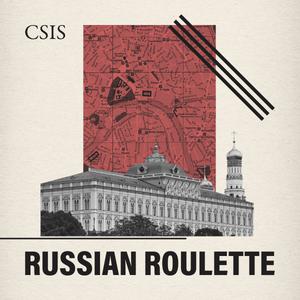 Russian Roulette
Russian Roulette
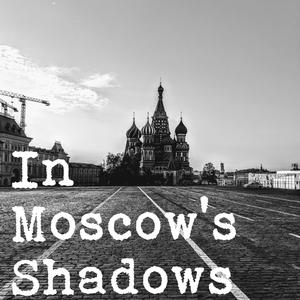 In Moscow's Shadows
In Moscow's Shadows
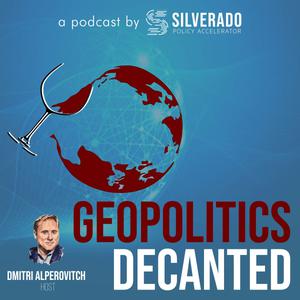 Geopolitics Decanted by Silverado
Geopolitics Decanted by Silverado
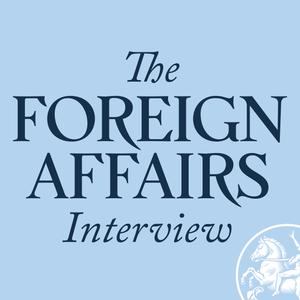 The Foreign Affairs Interview
The Foreign Affairs Interview
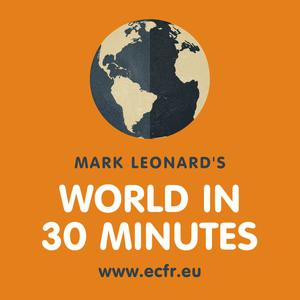 Mark Leonard's World in 30 Minutes
Mark Leonard's World in 30 Minutes
 War on the Rocks
War on the Rocks